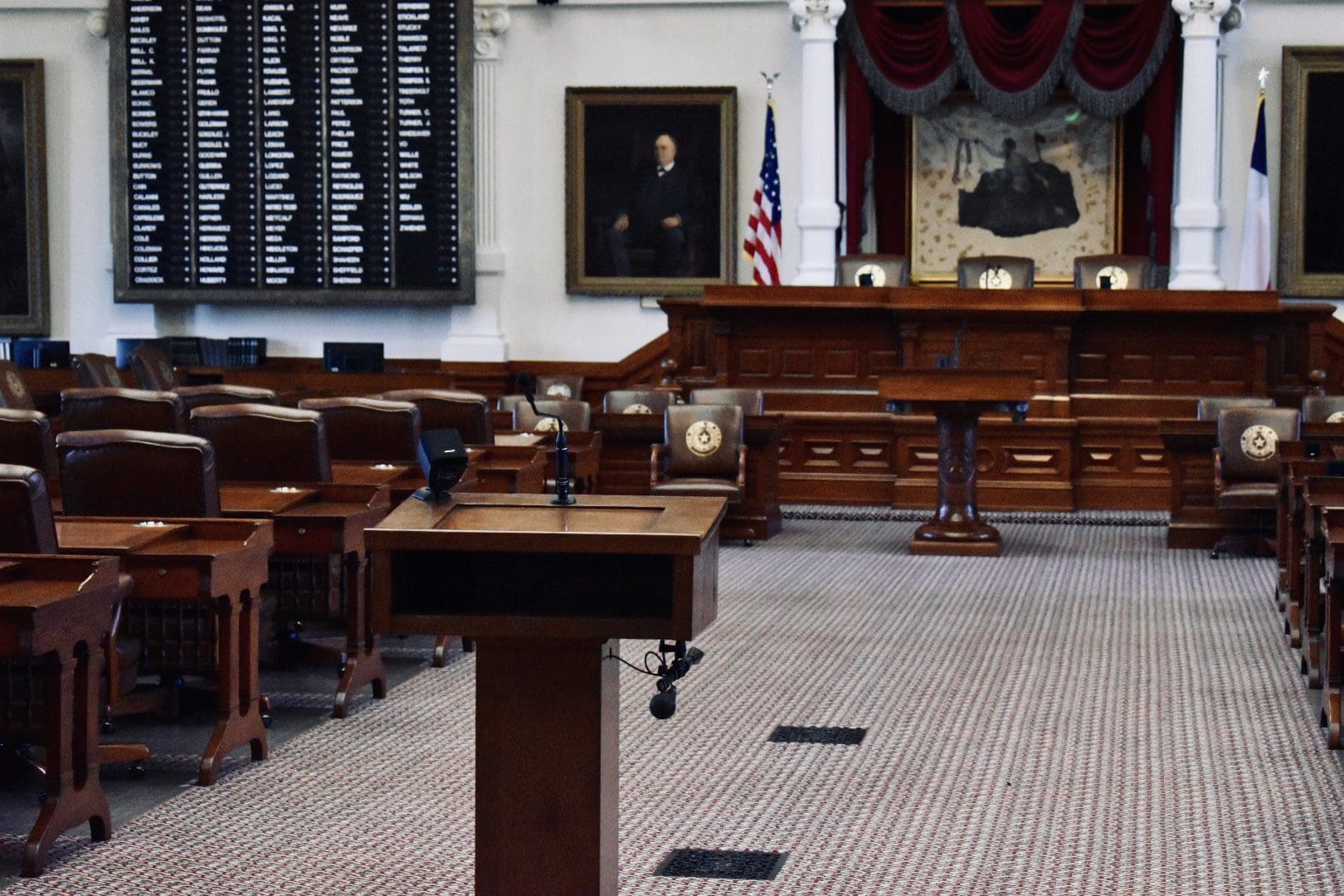With the 88th Legislative Session beginning on January 10, citizens must know the important deadlines they’ll need to confront in order to ensure bills they support have a shot to pass the Texas House and Senate and to be signed by the governor. Because it is a much larger body, and therefore moves in a more methodical manner, the deadlines imposed in the Texas House are of particular importance.
The Committee Process: Constitutionally Required
Under the Texas Constitution, bills and constitutional amendments must be referred to and passed by a committee in each chamber in order to be eligible for consideration on the House or Senate floor. The committee process is important for taking testimony and perfecting legislation before it comes up for debate. Unfortunately, the committee process can also be a serious hurdle to the passage of bills, and good legislation often dies when it is bottled up in committee. The committees are largely controlled by committee chairmen, who are hand-picked by the speaker of the House and lt. governor in the Senate.
Even when legislation has popular support and makes it out of committee, the committee chairmen will sometimes move too late or too slowly for the bill to actually make it to the floor in time for a vote. This process can be abused to create the appearance of last-minute movement on popular legislation that is nonetheless destined for defeat due to expected, subsequent delays.
Filing and Committee Referral
With certain exceptions, such as emergency legislation designated by the governor, bills must be filed during the first 60 days of the session, by Friday, March 10.
After a bill is filed in the House or received from the Senate, the speaker chooses a substantive committee to refer the bill to (such as the Public Education Committee for a bill regulating schools). Because this process moves largely in sequential order (though the speaker can and will often refer bills out of order), bills filed earlier in the session are more likely to be referred to committee earlier.
Committee Hearings
Under the Texas Constitution, committees can begin considering legislation after the first 30 days of the session; beginning on February 9 this session.
After receiving a bill, a committee will schedule a public hearing on it in which the public can testify or register their support or opposition. A bill is usually not voted on at that hearing, but at a “formal meeting”—typically a week or more later. Accordingly, the committee chairman’s choice of which bills to prioritize for a hearing has a huge impact on how quickly those bills move forward.
A vote is typically not scheduled on a bill until the majority of a committee notifies the committee chairman that they support the bill and the chairman decides he wants the legislation to move forward. If the chairman and a majority of the committee support the bill, it will be “favorably reported” to the House for consideration by the rest of the body.
The committee can decide to vote a bill forward in the same form it was filed, or they can recommend a “committee substitute.” Changes to a bill during the committee process can lead to significant delays.
Calendars and Floor Votes
After being reported favorably from a substantive committee, a bill will go to one of two calendars committees who schedule it for debate and a vote on the House floor on a particular day. The intent is to achieve a steady workflow on the House floor and to avoid a backup of legislation, though the process is often abused to serve a “gate-keeping” function. Entirely hand-picked by the speaker, the calendars committees can block legislation disfavored by leadership. This can be a second road block for legislation, even after a bill has gotten past the speaker’s hand-picked substantive committee chairmen.
The first day of debate on the House floor is called “second reading” and is the step where bills are typically amended. If, after debate, the bill is passed, it is taken up the next day on “third reading” for final passage. After that, bills originating in the House are sent to the Senate to undergo a similar process, though typically speedier process. Bills received from the Senate and passed by the House are either sent to the governor or, if they have been changed in the House from the original Senate version, sent back to the Senate so the two chambers can work through a process to iron out their disagreements.
Under the Texas Constitution, other than emergency items designated by the governor, the House and Senate can only begin taking up legislation for floor debate and passage beginning on the 61st day of the session; March 12 this session.
House Rules Set Deadlines for Floor Votes
The House rules state that regular House bills must be passed on second reading by the 122nd day of the session. So the window for consideration of House bills is just 62 days, from March 13 through May 11. After midnight on May 11, any House bill not passed on second reading is immediately dead.
Avoiding the Logjam
With the impending May 11 deadline, there is a tendency in the House to produce calendars for the days preceding the deadline that are so long that they are not finished and spill over from day to day. This creates a legislative log jam and means that bills placed on the regular calendar for May 11 (and even for May 10, and likely for May 9) will die without being reached when the clock strikes midnight.
In order to pass, a bill typically needs to be placed on the general calendar for Monday, May 9 or else it needs to be placed on the “Major State Calendar” (a list of priority legislation) for May 10 or May 11.
How Late Can Bills Be Voted Out of Committee?
So, with all of these deadlines in mind, how late can a bill be voted out of a substantive committee and still have a shot at being placed on a calendar that will be reached?
A House bill needs to be voted out of committee by the 116th day, Friday, May 5, in order to have any chance of being printed and reported to the calendars committee in time to be scheduled for a vote on the May 8 general calendar. In practice, even that deadline has proven to be too late. A bill realistically needs to be out of committee by the 108th day of the session, Thursday, April 27, in order to make it to the floor on time. Records from past sessions show that bills passed out of committee after that date rarely make it through the calendars committee and to the floor for a vote. And ideally, a bill should leave committee by the 98th day of session, Monday, April 17, in order to ensure plenty of time for passage. Most bills that pass are out of committee by that point in April.
If the speaker and his appointees on the Calendars Committee are expected to be hostile, the task becomes even harder. To overcome the calendars committee, a bill needs to be voted out of its substantive committee by the 88th day of session, Friday, April 7. Only if a bill is out of committee by that date, and promptly reaches the calendar committee, can members potentially invoke a rule allowing them to place a bill on a calendar when the Calendars Committee sits on it for longer than 30 days.
A Quick Word on the Senate
The Senate is a much more flexible body and has imposed far fewer deadlines on itself. But because of the nature of the House deadlines, some practical Senate deadlines are worth considering. The House imposes a deadline on itself for the second reading passage of Senate bills, as well. That deadline is the 134th day of session, Tuesday, May 23. Most of the Senate bills that will be passed by the House will be passed between the 124th and the 134th days. In order to make it into that flurry of activity, Senate bills ideally need to be in the House and moving through the committee process by the early part of May. Those bills that are sent over in the last two weeks rarely make it through the House process in time for passage.
In Summary
To have a legitimate chance to pass out of the House chamber:
A House bill must be filed by Friday, March 10, and preferably much sooner.
A House bill must be voted out of its House committee by Thursday, April 27.
A House bill must be scheduled for its “second reading” on the House general calendar for Monday, May 8.




